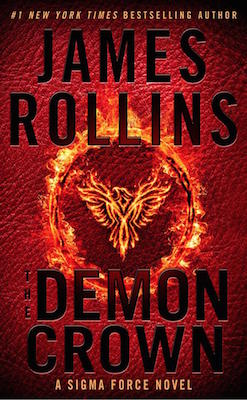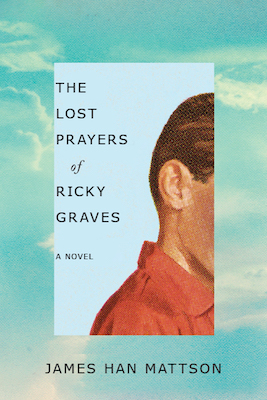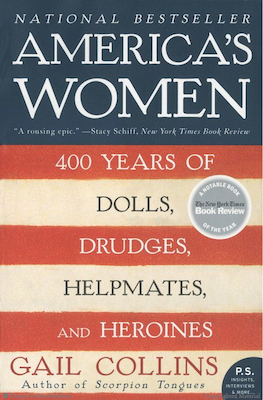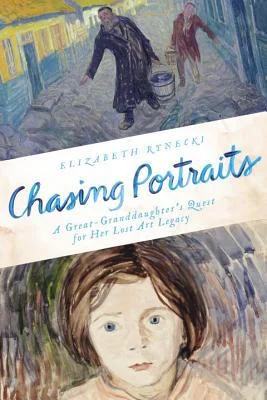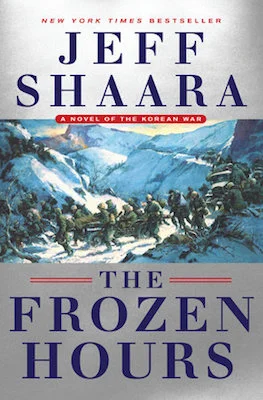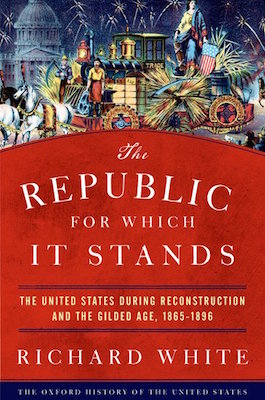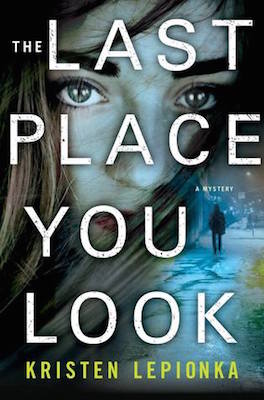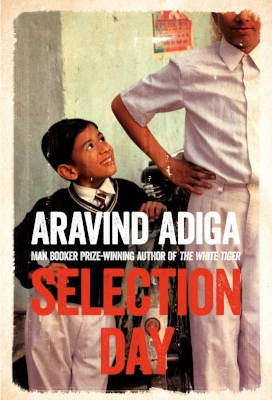31 Books That Should Be On Your Radar: January 2022
26 Books That Should Be On Your Radar: March 2020
21 Books That Should Be On Your Radar: January 2019
17 Books That Should Be On Your Radar: December 2017
Every month, the Writer’s Bone crew reviews or previews books we've read or want to read. This series may or may not also serve as a confessional for guilty pleasures and hipster novels only the brave would attempt. Feel free to share your own suggestions in the comments section or tweet us @WritersBone.
Smothered by M.C. Hall
Daniel Ford: Megan Cassidy delivers an innovative breath of fresh air into the crime fiction/mystery genre with Smothered. Rather than follow a dogged detective or sinister villain, the novel tells the story of a murdered young actress through an online tabloid, court transcripts, police recordings, and an unruly comments section. As more revelations come out, readers will not only question the characters' motivations, but also reconsider their own beliefs about celebrity, crime, familial bonds, race, and the fallibility of institutions we trust. Smothered is a winning narrative sure to put Cassidy’s name on the literary map.
The Demon Crown by James Rollins
Sean Tuohy: They're back! Sigma Force returns in The Demon Crown, the latest entry in James Rollins’ much loved and long-running series. As always, Rollins masterfully spins together cutting-edge science and forgotten history to create a breathtaking adventure. Alexander Graham Bell even makes a special appearance! Listen to my recent interview with the author to find out more about what inspired the latest Sigma adventure.
There Are More Beautiful Things Than Beyoncé by Morgan Parker
Daniel: This poetry collection is a furnace. Every word feels like it’s on fire. Essential writing of the highest order. I’ll be re-reading this for months.
The Lost Prayers of Ricky Graves by James Han Mattson
Daniel: I read this book months and months ago and I’m still haunted by it. Told from various perspectives, as well as online chats and emails, The Lost Prayers of Ricky Graves explores the aftermath of the title character taking the life of a classmate. All the characters in this novel are tragically broken, but not totally devoid of hope. The result is a narrative that deftly examines not only the motivations behind violent crime, but also how one community struggles to both learn and recover.
America's Women: 400 Years of Dolls, Drudges, Helpmates, and Heroines by Gail Collins
Daniel: Needless to say, without any of the women that Gail Collins’ profiles in this book, America would have been as obsolete as a powdered wig. 2017 has seen its share of heroines, and America's Women serves as a pressing reminder of those ladies who have passionately, rebelliously, and stoically shouted down the patriarchal society hell bent on shutting them up. Our staff features some of the smartest and fiercest women you’ll ever met, and I’m grateful every day that their words grace our website. We stand with them, and their badass predecessors, today, tomorrow, and forever.
King Of Spies by Blaine Harden
Sean: Author Blaine Harden dove into murky waters to discover the truth about one of America's most talented and disturbed intelligent officers during the Korean War. Donald Nichols had a seventh-grade education and grew up in the backwaters of Hollywood, Fla. (my hometown), before he joined the Air Force where he honed his hidden talent for gathering intelligence. Nichols quickly developed a giant spy network that helped turn the Korean War in favor of the United States. Working from a hidden base, Nicolas created an empire built on secrets. Harden uses Nichols' bloody rise to the top to explore the conflict and the lasting effect it had on the country.
What We Build Upon the Ruins by Giano Cromley
Daniel: This is a short story collection that I wish I had written. Cromley told me during our recent podcast chat that he had a desire to tell stories from a young age. It shows on every page in What We Build Upon the Ruins. I loved every word of this collection.
Chasing Portraits by Elizabeth Rynecki
Daniel: Chasing Portraits is a personal and visceral read that you won’t soon forget. The book chronicles Elizabeth Rynecki’s emotional quest to find her Polish-Jewish great-grandfather’s paintings that were lost during World War II. His artwork serves as a beautiful and sorrowful time capsule for Jewish communities that were essentially wiped out by the Nazis. How Rynecki was able to harness her emotions and get something coherent and readable on the page, I’ll never know. I very much look forward to seeing the documentary she’s working on! (Tissues will be required.)
The Frozen Hours by Jeff Shaara
Daniel: All of Jeff Shaara’s work brings past conflicts to life in an extremely well-written and poignant way, and The Frozen Hours is no exception. But this book had an added level of passion and intimacy based on Shaara’s experience talking to Korean War vets. It’s a group of Americans that has been clamoring for more people to tell their stories, and Shaara more than succeeds in telling it well. The cold of the war seeps into your bones early, and is only warmed by the valiant (and very human) courage of the author’s expertly crafted characters on both sides of the conflict. Shaara explains more about what went into writing The Frozen Hours during our podcast discussion below.
Double Feature by Owen King
Sean: Owen King creates an exquisite and witty family story in his debut novel. Sam, the son of a famed B-grade actor, is dealing with the aftermath of making his first film. Hiding out with his over-the-top father in a house in upstate New York, Sam must come to terms about their strained relationship. King’s characters feel like they are people who populate your own life. Double Feature smacks of reality and is brimming with humor.
Colorado Boulevard by Phoef Sutton
Daniel: Phoef Sutton’s main character Crush is entertaining and luckless as always, but his supporting cast really steals the show in this novel. You won't find more hapless and bumbling villains outside an Elmore Leonard novel. I loved the portrait of Los Angeles that Sutton explores throughout the book. His gift for dialogue and storytelling are on full display here, and readers will gluttonously devour pages deep into the night.
Daniel: Reconstruction and the Gilded Age are tough sells for even the most dedicated history geeks, but Richard White makes these eras come alive in his recently published narrative. Part of Oxford University Press’ stellar American history series, The Republic for Which It Stands also offers plenty of parallels to our own troubled political times. White wouldn’t completely recommend buying into signs for hope during a recent podcast chat, but his book certainly shows we’ve survived Gilded Age thinking before and likely will again.
Author’s Corner
By Kellye Garrett, author of the Detective by Day Mysteries: Hollywood Homicide (out now) and Hollywood Ending (out August 8, 2018)
A Negro and an Ofay by Danny Gardner
A must if your love noir. Because of the black main character and the big city historical setting, it’s easy to immediately draw comparisons to Walter Mosley’s iconic Easy Rawlins. But Gardner’s Elliott Caprice is very much his own character—a mixed-race former cop forced to return to his Chicago hometown to battle both the police and organized crime toughs. What’s more is that Gardner’s depiction of race relations and corruption still feel especially relevant today. I’m excited for the next book in the series.
The Last Place You Look by Kristen Lepionka
A must if you love PI novels. Full disclosure, Kristen was my mentee in a contest called Pitch Wars in 2015 so I’ve loved this book for a while now. I knew when I read that final draft of what would become The Last Place You Look that it was the best mystery I’d read in years. The story centers on a bit-of-a-mess bisexual private investigator named Roxane Weary, who looks into a cold case involving a black teen convicted of killing his white girlfriend’s parents the same night the girlfriend goes missing. His sister hires Roxane when she swears she sees the missing woman at a gas station years after the crime. With Sue Grafton wrapping her Kinsey Millhone series, Roxane Weary is more than able to fill that void.
The Plot is Murder by VM Burns
A must if you love cozy mysteries. This debut features all the things I love about the lightweight amateur detective genre—small town setting, interesting cast of characters, lots of mouth-watering food, and an MC with a cool trade—while also featuring something unique to the genre: a book within a book. Samantha Washington is a widow finally following her dreams of opening a mystery bookstore while also writing a historical British mystery of her own. We get to read Samantha’s work in progress so we’re trying to solve two who-dun-its. And it’s a testament to the author that both are really well-written and engaging.
Are You Sleeping by Kathleen Barber
A must if you love domestic thrillers. This debut is part thriller, part family drama—all ripped from the headlines. Over a decade ago, Josie Burhman’s father was murdered and her neighbor was convicted of the crime. Case closed? Not quite. The murder gets new attention thanks to a melodramatic podcast that grips the country. After running from her past for a decade, Josie’s finally forced to confront it—and her estranged twin sister—head on when she returns home after another family tragedy. When we're giddily listening to podcasts, flipping through the pages of magazines, and tweeting our thoughts on the lives of complete strangers like we know them, we never consider how it all must affect the victim's family. This book will have you thinking twice before you listen/watch to the next episode of your favorite true-crime podcast or show.
Listen to our live podcast interview with Kellye Garrett:
#NovelClass
In the Season 1 finale of #NovelClass, Dave Pezza and Daniel Ford discuss Chiara Barzini's Things That Happened Before the Earthquake.
Learn more about the #NovelClass series.
More From the Writer’s Bone Library
16 Books That Should Be On Your Radar: February 2017
Every month, the Writer’s Bone crew reviews or previews books we've read or want to read. This series may or may not also serve as a confessional for guilty pleasures and hipster novels only the brave would attempt. Feel free to share your own suggestions in the comments section or tweet us @WritersBone.
Lucky Boy by Shanthi Sekaran
Gary Almeter: To call this book a miracle is somehow an understatement, but it does achieve something miraculous. Sekaran has written a novel about immigration, the adoption of illegal immigrants' babies, the excesses of Silicon Valley, the Asian and Mexican immigrant experiences, marriage in the 21st century, and prison.
Even with the enormity of all that, the most compelling aspects of this novel are the simple love story and one immigrant mother's odyssey. Through it all, there are no heroes and no (well, maybe a few) villains. Everyone's hat is a shade of gray, and everyone elicits some sort of sympathy. I read this awaiting the ending—knowing that a happy ending was as close to metaphysically impossible as could be. The structure of that novel goes back and forth from Soli's story to Kavya's but the cadence never becomes repetitive. The author surprises you now and again and the writing is just too good to ever not be compelling.
What's also miraculous is the way Sekaran navigates all the worlds—the dusty village in Mexico, the sorority kitchen in Berkley, the Indian wedding, the Internet company's CEO's office. You walk through all these terrains as if you're really there. And you find yourself questioning for whom you are cheering and why.
Days Without End by Sebastian Barry
Daniel Ford: Days Without End is a splendid novel from Irish author Sebastian Barry (who has twice been nominated for the Man Booker Prize). The novel follows Thomas McNulty as he comes of age in a violent era in American history. After surviving a harrowing journey from Ireland in the 1850s, Thomas finds himself signing up for the U.S. Army with his brother-in-arms John Cole.
As it turns out, John is more than just a friend or a close battlefield compatriot. Thomas and John are lovers, and their romantic bond is central to the novel rather than being vaguely alluded to or dismissed out of hand. In a recent interview (which ran in “Friday Morning Coffee”) Barry told me that his son coming out was a big inspiration for Thomas and John’s story. That influence shows in the tender and moving way he describes their love for each other. It’s made all the more poignant by Barry’s decision to tell the tale from McNulty’s point-of-view in a stream of consciousness that makes the novel’s events all the more immediate and crushing.
Barry puts these two men through the ringer. They see all manner of death and destruction during the Indian Wars and the Civil War. However, there’s also a wealth of dark humor and empathy that permeate these pages. Days Without End deals with issues and themes that are set in the past, but are still relevant today in the United States and around the globe.
Selection Day by Aravind Adiga
Adam Vitcavage: Selection Day, the new novel by Man Booker Prize-winner Aravind Adiga, is the perfect novel for the post-2016 Election world our new President has created. Instead of shunning diversity, we should be embracing it. Agida’s novel takes place in his native Mumbai and explores a young boy’s life and how it is consumed by cricket (a sport we Americans know nearly nothing about). It’s not a sports novel by any means, but instead a witty social commentary on a corner of the world that has often been perceived in a cartoonish way by Westerners. The fascinating realism the writer provides for the setting makes this coming-of-age novel a richness that readers should welcome with open arms
Talking As Fast As I Can by Lauren Graham
Stephanie Schaefer: Reading this book was like grabbing coffee with an old friend—filled with laughs, advice, and plenty of sarcasm. I’ll admit that I was a late bloomer to “Gilmore Girls” fandom. Having only seen a few re-runs in high school, I started binge watching the series on Netflix just a few months ago in anticipation of Netflix’s reboot (I have since finished all 7 seasons + “Gilmore Girls: The Year in the Life “and am anxiously awaiting an announcement that they’ll be future installments *fingers crossed*).
Although it took me a while to jump on the Stars Hollow bandwagon, I instantly fell in love with Lauren Graham’s acting on NBC’s “Parenthood” (if you haven’t seen the show before, go watch it, but make sure you grab a box of tissues). I enjoy how Graham can effortlessly switch between comedy and drama in both beloved series. She doesn’t take herself, or Hollywood, too seriously, which is evident in her memoir (essentially, she’s the anti-Gwyneth Paltrow). In a world filled with political drama, I think Talking As Fast As I Can is just what we need: a lighthearted, unpretentious book to make as laugh and escape the tension of the last few months, if only for a few blissful chapters.
The Good Girls Revolt by Lynn Povich
Daniel: The Good Girls Revolt (the book that provides the basis for the Amazon television show) is essential reading for anyone with a judicious and rebellious heart. However, some of the early stats pioneering journalist Lynn Povich includes are shocking. She writes, “Until around 1970, “women comprised fewer than 20 percent of students in medical school, 4 percent of law school students, and only 3 percent of business school students.” Esh.
The world began to change in the late 1960s and early 1970s in large part because of the women's movement. Povich, one of the women of Newsweek who sued the magazine for equal rights in 1970, spins a captivating narrative that details all of the obstacles women in the workplace attempted to vault over both legally and culturally. Based on myriad interviews with former Newsweek staff writers and editors, The Good Girls Revolt features one badass female writer after another, some of which never got to fully reap the benefits of the lawsuit they won. “When I found out the working conditions were illegal," Povich said in a recent interview with Writer's Bone, "I thought, oh my god, it’s a moral imperative that we do something.”
The turbulent 2016 Presidential campaign and the conservative administration that resulted prove that the country has a long way to go in how it treats and values women. However, the size and fervor of the crowds during the Women’s March following Trump’s inauguration gives me hope that the ideals fostered by the women in Povich’s book are alive and well, and will give us all something to emulate and rally around in the days to come.
Pachinko by Min Jin Lee
Daniel: It’s imperative we embrace all immigrant narratives during the next few years, but especially those as well written and sweeping as Min Jin Lee’s Pachinko (out Feb. 7). Lee’s novel follows generations of one Korean family, beginning in 1900s Korea. The narrative’s exquisite prose and well-crafted characters perfectly match Lee’s themes of family, love, and faith. The opening line sets the tone, both for the novel and our times:
“History failed us, but no matter.”
It’s in that failing that we discover who we are and who we care about. Lee’s novel may have been set from a Korean family’s point of view, but it could be any of our families. Familial bonds have a tendency to shape our identity and worldview, both for good and for ill, and Lee captures that tension and connection beautifully throughout Pachinko. I look forward to sitting down with the author to discuss her structure and character development later this month.
Idaho by Emily Ruskovich
Adam: It’s easy for a psychological thriller to get lost in its own mystery. Some writers push plot twists down readers’ throats without worrying about much else. However, Emily Ruskovich’s debut is a high literary affair with lyrical prose and shifting perspectives that will live a lasting impression on its readers. Idaho is set in...well, Idaho. It explores a family torn apart by the murder of a child while another disappears. Fans of Smith Henderson’s Fourth of July Creek will experience a similar haunting feeling as these characters fall into the depths of despair. While the plot is extremely riveting, it is Ruskovich’s dedication to making her words leap off the page in a beautiful way that stands out. The juxtaposition of the horrors you’re reading and how breathtaking the prose makes this an early frontrunner for a future “Best Novels of 2017” list.
The Impossible Fortress by Jason Rekulak
Gary: The ‘80s were big for a host of reasons: big hair, big cell phones, big escapist television shows like "Dynasty," big concept albums like Paul Simon's "Graceland," big fears about Russia. But paradoxically, the decade was still small insofar as people still shopped in small stores on village main streets and people's obsessions were limited to that which could be covered by three networks and a finite number of media outlets; news spread slowly and stuck around for awhile. When everyone talked about something, everyone talked about it for a long time.
Enter Vanna White's appearance in Playboy in May 1987. It was the only thing a 14-year-old boy could think or talk about for a month. Fourteen-year-old boys like Billy, Alf and Clark in Jason Rekulak’s The Impossible Fortress. The novel is the story of how they try to get a copy of that issue of Playboy so they can see ogle the “Wheel of Fortune” star. Rekulak does a spectacular job of recreating the ‘80s in all of its bigness and in all of its smallness. He does an even better job of recreating the world of a teenage boy—how they are simultaneously omnipotent and insanely vulnerable, and how their limitless dreams are limited by the logistics of adolescence.
The writing is grand and filled with details that evoke a teenager’s mind: “Both of his parents worked—his father hung wallpaper and his mother was a secretary in a Realtor's office—so they were rolling in dough.” Most importantly, Rekulak has created characters that are authentic and likable, which makes the book about much more than stealing a magazine to see Vanna’s hoo-hoo.
Perfect Little World by Kevin Wilson
Adam: Kevin Wilson broke out onto the literary scene with a heartwarming and quirky family comedy. In Perfect Little World, he brings his sharp literary prose to a story with a plot that sounds like sci-fi: a commune where you live with your children, but they don’t know who their parents are. It’s clear that the author’s obsession with family is something he’ll continue to explore. Perfect Little World feels fresh every step of the way, at once breezy and thought provoking. His story is offbeat and wholly original. Even when the traditional tropes come into play, he puts an unorthodox spin on it that never makes them feel stale. In an interview with “Electric Literature,” the author expressed how important it was trying to avoid copying The Family Fang in Perfect Little World.
The Seventh Plague by James Rollins
Daniel: A missing archeology professor wanders out of the desert. His body is in a semi-mummified state and laden with clues about his disappearance. However, he unleashes an unknown, and possibly ancient, plague that threatens the globe. That’s the thrilling set up for James Rollin’s most recent Sigma Force novel, The Seventh Plague.
Readers are treated to mysterious assassins, a wise-crackin’ Kowalski, and Biblical mayhem in what should be yet another Rollins best-seller. His adventurous blend of science and history never fails to disappoint, and knowing the effort and dedication the author puts into his craft makes following Sigma Force all the more enjoyable. In our current political state, it’s also nice picking up a thriller that embraces and champions facts rather than cowers from them.
Oh yeah, Mark Twain and Nikola Tesla make an appearance and prove integral to the plot! We’re currently prodding Rollins to write a standalone buddy comedy featuring the famed author and inventor.
Lightwood by Steph Post
Daniel: One of the best things about interacting with as many up-and-coming authors as we do is seeing their work improve with each novel or short story collection. Steph Post’s debut novel A Tree Born Crooked was a lot of fun, but you could see how much potential she had to do even more with her prose and characters. She didn’t disappoint with her sophomore effort Lightwood!
Her main character, Judah Cannon, walks out of prison and right back into his family’s criminal enterprise. After a lucrative robbery goes sideways, Judah finds himself caught between his hillbilly king pin father, a disgruntled biker gang hell bent on recapturing its past glory, and a tyrannical, corrupt “lady preacher” who would be right at home on an episode of “Justified.”
Post is a natural fit for the “sunshine noir” genre, and Lightwood is getting great buzz from the crime fiction crowd. Don’t be surprised if Post is a household name by book three!
Desperation Road by Michael Farris Smith
Daniel: We do what David Joy says around here. (I also can’t wait to read this book!)
Any "Books You Should Read in February" list that doesn't contain @michael_f_smith's Desperation Road from @leeboudreauxbks is suspect.
— David Joy (@DavidJoy_Author) February 1, 2017
Author’s Corner
By Rory Flynn
The short days of a Boston winter call for compact, streamlined novels that can be read quickly, before it gets dark. We could turn on the lights, but that costs extra and thrifty New Englanders don’t splurge on lights or heat or food. Those are for libertines.
A short novel has to work like a little machine, with all the gears in place. But they also have to have enough depth to make them emotionally engaging. Here are some that do both.
The Devil in the Valley by Castle Freeman, Jr.
Castle Freeman Jr.’s deceptively simple retelling of the Faust legend, grafted to a flinty Vermont town, is a joy to read. He captures more in a few lines of dialogue than most writers can in several pages. While he may be best known for Go With Me, the cult classic favored by dark writers and readers, Freeman excels at capturing the darkness in broad daylight, the streaks of sin that run through even the most upright citizens. Confession: This novel is dedicated to me, and I couldn’t be more proud of it.
Hawthorn & Child by Keith Ridgway
Not all fictional cops act like real cops. And that’s good for readers, otherwise we’d live in a world of grinding procedurals. If you want to immerse yourself in cop reality, I suggest lighting a car on fire and waiting around to get arrested. You’ll get your fill of cops soon enough. That’s not a problem with Keith Ridgway’s twisted London cops, Hawthorn & Child, who seem as floaty and pleasantly surreal as an afternoon on codeine. Legendary bookseller Tom Wickersham recommended this one, and he’s never steered me wrong. I’m halfway through and this subversively absurd novel just keeps getting better.
Mothering Sunday by Graham Swift
Look out. It’s literature. No cops in sight here in Graham Swift’s earthy gem of a novel. I loved Waterland, his weirder and slightly longer novel. But Mothering Sunday is a textbook study of beautiful writing, indelible characters, and precise delineation of a lost era. I actually forced myself to stop reading so that the book would last longer. I went to one of Swift’s readings about a decade ago and he read so fantastically well that he restored my faith in bookstore events.
The Sympathizer by Viet Thanh Nguyen
Deserved winner of the 2016 Pulitzer, Viet Thanh Nguyen’s The Sympathizer (which checked in at #2 on Writer’s Bone’s “Best Books of 2016” list) could very easily have been a compressed novel in the style of The Quiet American. Saigon falls. The defeated Vietnamese decamp to California. Dissent in the ranks leads to murder and a return to Southeast Asia and new disasters. Most of these historical plot points are explored well in the many, many fine Vietnam-era novels, memoirs, and histories. (Dispatches, A Bright Shining Lie, et al). But luckily, Nguyen goes long, spinning out the story in vast swaths of smart, beautiful writing—the kind that makes even the most jaded reader notice. Though the end of the novel is telegraphed on the first page, I wanted to know how it all happened, even if it meant reading a longer novel.
Rory Flynn is the author of the Eddy Harkness series (the most recent entry, Dark Horse, is out in paperback from Mariner Books this spring), and a longtime friend of the Writer’s Bone podcast.
#NovelClass
Daniel Ford and Dave Pezza recently introduced #NovelClass, a new “Friday Morning Coffee” segment that features an in-depth discussion about a novel chosen by Writer’s Bone’s social media followers.
The first installment features Kevin Morris’ All Joe Knight, which was published December 2016 by Grove Press. (Be warned, this discussion contains spoilers.)
To recommend their next read, email admin@writersbone.com.
More From the Writer’s Bone Library
Winter (Reading) Is Coming: 4 Book Collections to Hibernate With
By Sean Tuohy
No, that chill in your bones doesn’t mean a White Walker attack is nigh. Sadly, fall is rapidly fading and soon we’ll be confronted with mounting snow piles and shabby mall Santas.
You may find yourself trapped inside struggling to remember what the sun looks like this winter, so why not dig into a book series?
The following four series will take you away from the ice cold winter and bring you to a new world filled with characters that leap off the pages.
The Last Policeman Trilogy by Ben Winters
The world is going to end in a few months so why carry on? Why do your job? In Ben Winters’ game-changing detective series features a small town police officer who performs his duties as the world around him falls apart. A solid mystery mixed with vivid characters and twists and turns bring Winters’ doomed world to life.
The Harry Bosch Series by Michael Connelly
The long-running series features one of the best literary detectives, Harry Bosch. Bosch is a man who is obsessed with solving murders and filled with a deep darkness. He spends his nights quietly watching the city from his house up in the Hollywood Hills or driving the city streets while listening to jazz. Zigzag plots roller coaster readers through the underbelly of Los Angeles.
The Sigma Series by James Rollins
Real world science and edgy science fiction mix together perfectly in these action-packed novels. Following a special team that deals with weird, the Sigma Series features slam-bam action and a group of characters you’d follow to the ends of the earth. Each time you open the next book it feels like you’re welcoming an old friend—one that will have you gasping for air by the end of the first page.
The Frontlines Series by Marko Kloos
An over-populated and war torn Earth is uninhabitable, so Marko Kloos’ main character Andrew Greyson decides to join the military and set off on a wild adventure into an ever expanding universe. The series features grounded and human stories that just happen to take place in the far reaches of the galaxy.






